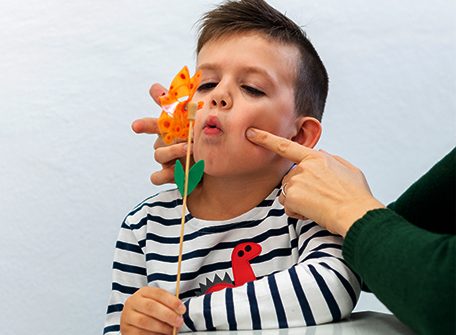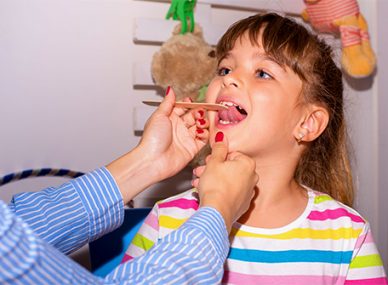Babies are born hungry, yet they can have difficulty learning to eat and swallow properly. If your baby is having problems breast- or bottle-feeding, or if you’re having trouble introducing solid foods, or if your baby appears to be a fussy eater, a speech language pathologist or occupational therapist can help.
Dysphagia therapy specialists at Hope AMC recommends parents be aware of these following symptoms:
Signs That Say Your Baby May Not be Eating Properly:
- Isn’t gaining or developing weight
- He or she refuses to eat or drink.
- Frequently spits or throws up
- When she feeds, she cries, fusses, or arches her back.
- When eating or drinking, he or she has problems breathing.
- During meals, has difficulty eating, coughs, or gags
- During or after meals, has a gurgling, breathy, or hoarse voice
When Should You Go to a Doctor or Therapist if You’re Having Trouble Eating?
Pediatric swallowing therapy specialists at Hope AMC in Dubai recommend seeing a feeding therapist if your child has one of these above-mentioned symptoms, is only eating 5-10 different meals, is gagging or unable to transition to other textures of food, or mealtime is very unpleasant.
What are the Factors that Cause Feeding and Swallowing Difficulties in Children?
- Being premature or having a low birth weight are both risk factors.
- Reflux or other digestive issues
- Asthma and other breathing difficulties
- Lip or palate cleft
- Facial and neck muscle weakness
- Medications that make her tired or unable to eat
- Sensory issues or autism
- Cerebral palsy, cystic fibrosis, Down’s Syndrome, and meningitis are a few examples of diagnoses
How Swallowing and Stuttering Therapy can Aid Feeding Issues in Babies:
Pediatric feeding therapists are highly educated to evaluate your child’s chewing abilities and whether or not they are moving their tongue properly. They can teach them how to develop their mouth muscles and how to move their tongue more effectively.
Babies’ ability to swallow food and drink liquid from a bottle or from a cup may improve and may also coordinate breathing while eating. Older babies can also learn how to chew properly and feed themselves.
Aversion to certain textures of food in children is a common scenario, which dysphagia therapy can help them come around, thereby making feeding time more enjoyable by changing food textures, feeding positions, liquid thickness, etc. while also improving behavior during eating. First, speech and occupational therapists assess your baby to identify what factors are causing these issues – swallowing and stuttering issues, and recommend therapy to help your baby enjoy meal time.
At Hope AMC in Dubai, you’ll find the best quality, evidence-based, and personalized care for your child. Our speech and occupational therapists specialize in providing holistic evaluation of children’s needs and customizing intervention plans to meet the individual needs of children and their families as well as incorporating a variety of therapeutic approaches.




